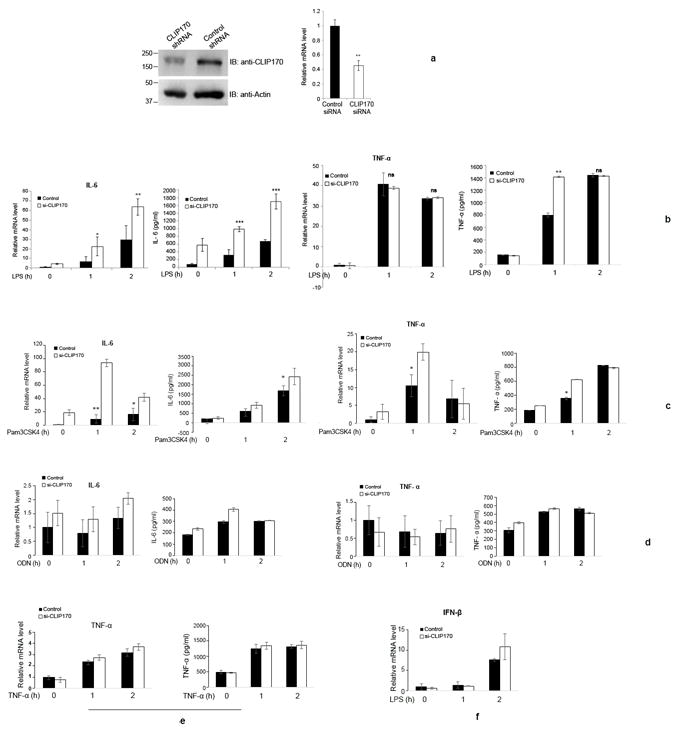Figure 4. Silencing of endogenous CLIP170 potentiates LPS-induced pro-inflammatory cytokines in macrophages.

(a) shRNA-mediated knockdown of endogenous CLIP170 in mouse macrophages. J774 cells were transduced with lentiviral particles harboring CLIP170 shRNA or control shRNA expression plasmid followed by immunoblotting and qPCR analysis to examine the levels of endogenous CLIP170. The blot was probed with anti-CLIP170 antibody to detect the endogenous CLIP170. Actin served as the loading control; (b) Knockdown of endogenous CLIP170 potentiates LPS-induced expression of IL-6 and TNF-α in mouse macrophages. J774 cells transduced with CLIP170 shRNA expression plasmid or control shRNA plasmid were challenged with LPS (100 ng/ml) for indicated time points, followed by ELISA and qPCR to quantify the levels of IL-6 and TNF-α. (c - e) Expression of IL-6 and TNF-α in CLIP170 silenced J774 cells challenged with Pam3CSK4, ODN and TNF-α. CLIP170 weakly suppressed Pam3CSK4-induced IL-6 and TNF-α levels (c) whereas it did not affect ODN- (d), TNF-α- (e) induced pro-inflammatory cytokines. (f) Expression levels of IFN-β in CLIP170 silenced cells challenged with LPS. IFN-β levels were not significantly altered in CLIP170 silenced cells compared to control. Data are presented as mean ± SD from at least three independent experiments (*P < 0.05, **P < 0.01 and ***P < 0.001); ns: not significant.
